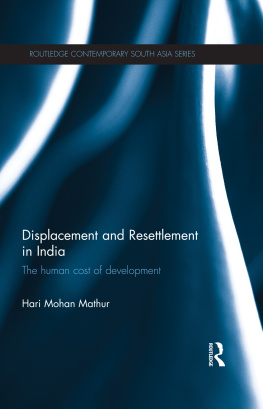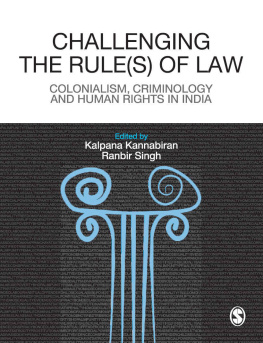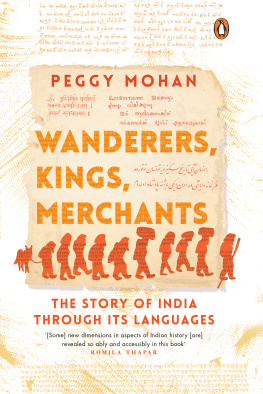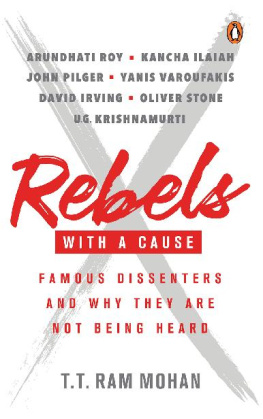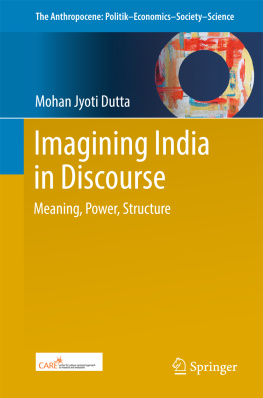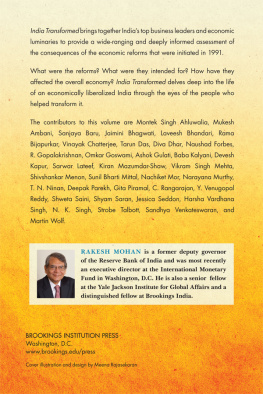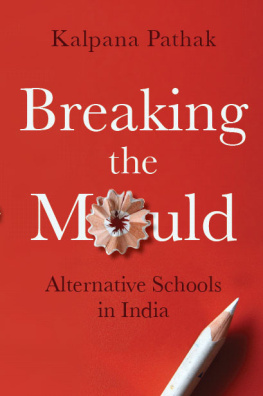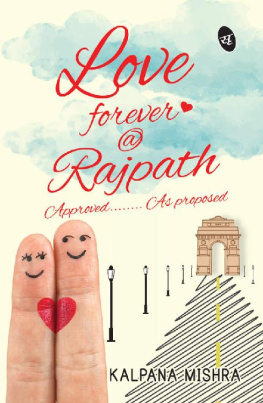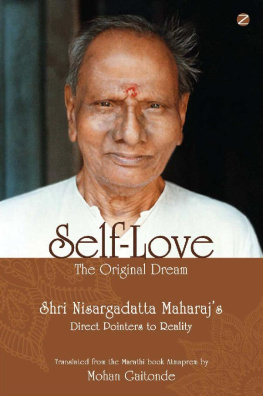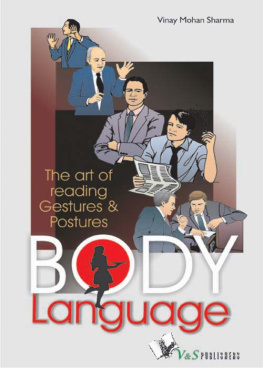Kalpana Mohan - An English Made in India: How a Foreign Language Became Local
Here you can read online Kalpana Mohan - An English Made in India: How a Foreign Language Became Local full text of the book (entire story) in english for free. Download pdf and epub, get meaning, cover and reviews about this ebook. year: 2019, publisher: Aleph Book Company, genre: Politics. Description of the work, (preface) as well as reviews are available. Best literature library LitArk.com created for fans of good reading and offers a wide selection of genres:
Romance novel
Science fiction
Adventure
Detective
Science
History
Home and family
Prose
Art
Politics
Computer
Non-fiction
Religion
Business
Children
Humor
Choose a favorite category and find really read worthwhile books. Enjoy immersion in the world of imagination, feel the emotions of the characters or learn something new for yourself, make an fascinating discovery.

- Book:An English Made in India: How a Foreign Language Became Local
- Author:
- Publisher:Aleph Book Company
- Genre:
- Year:2019
- Rating:5 / 5
- Favourites:Add to favourites
- Your mark:
- 100
- 1
- 2
- 3
- 4
- 5
An English Made in India: How a Foreign Language Became Local: summary, description and annotation
We offer to read an annotation, description, summary or preface (depends on what the author of the book "An English Made in India: How a Foreign Language Became Local" wrote himself). If you haven't found the necessary information about the book — write in the comments, we will try to find it.
Kalpana Mohan: author's other books
Who wrote An English Made in India: How a Foreign Language Became Local? Find out the surname, the name of the author of the book and a list of all author's works by series.
An English Made in India: How a Foreign Language Became Local — read online for free the complete book (whole text) full work
Below is the text of the book, divided by pages. System saving the place of the last page read, allows you to conveniently read the book "An English Made in India: How a Foreign Language Became Local" online for free, without having to search again every time where you left off. Put a bookmark, and you can go to the page where you finished reading at any time.
Font size:
Interval:
Bookmark:
AN ENGLISH MADE IN INDIA
Books by Kalpana Mohan
Daddykins: A Memoir of My Father and I


ALEPH BOOK COMPANY
An independent publishing firm
promoted by Rupa Publications India
First published in India in 2019
by Aleph Book Company
7/16 Ansari Road, Daryaganj
New Delhi 110 002
Copyright Kalpana Mohan 2019
All rights reserved.
The author has asserted her moral rights.
The views and opinions expressed in this book are the authors own and the facts are as reported by her, which have been verified to the extent possible, and the publishers are not in any way liable for the same.
No part of this publication may be reproduced, transmitted, or stored in a retrieval system, in any form or by any means, without permission in writing from Aleph Book Company.
ISBN: 978-93-88292-87-0
1 3 5 7 9 10 8 6 4 2
This book is sold subject to the condition that it shall not, by way of trade or otherwise, be lent, resold, hired out, or otherwise circulated without the publishers prior consent in any form of binding or cover other than that in which it is published.
CONTENTS
INTRODUCTION: A KILLER LANGUAGE
This is my ocean, but it is speaking
Another language, since its accent changes around
Different islands.
Derek Walcott, Tropic Zone
I was introduced to the beauty of the world around me through the prism of English. As a child, I felt sorry for my mother. She had never ventured beyond the hallowed gates into the exclusive club of the English language. My mother attended four years of elementary school in the late 1930s in Keralas North Paravur where she learned to read and write Malayalam. In 1944, she was married, at fourteen years of age, to a man she had never set eyes on, as was customary in conservative Brahmin families in the early part of the twentieth century.
My mother never savoured the kinks and clefts of the English language or fretted, as I did, over English wordstheir spelling, pronunciation, texture and usage. Nor did she travel by Enid Blytons fictional train, along with Darrell Rivers, to a school in Cornwall called Malory Towers. In her imagination, my mother had never flung open picnic baskets stocked with cucumber sandwiches and lemonade, or bitten into scones served with clotted cream and jam. She had never chortled upon reading how one morning Wooster actually defied Jeeves, his man Friday, because, as Wooster said, You cant be a serf I suppose my mother would never have given old P. G. Wodehouse a dekko, even if hed lounged, pipe in mouth, on the teak sofa of her drawing room in Chennai. It follows that my mother had never quoted Milton or Pope or Tennyson the way many educated people of the day often did in India. Until the day she died, lipstick was liftick and briefcase was briescafe and that, really, was that. In her world view, the universe of English was hardly a paradise lost. English was merely a cold planet in an alternate universe filled with people who had a crick in their neck.
I had never believed that I would string together words in English until one day in the year 1972, when, as an eleven-year-old, I discovered, to my complete amazement, that I could actually speak the language. Thrust into a new environment in Dar es Salaam, Tanzania, where my father had begun work as an accountant with the government, I began cobbling together perfectly grammatical English sentencesunder duress. A muckle of English words had been hiding there all along, right under my tongue, pullulating under a heap of Tamil and Malayalam.
Id imbibed English by osmosis in the English-medium school I attended, hearing the way my Indian teachers spoke it, with interjections of Tamil between sentences. My library English seemed sufficient only for homework, yet Id picked up on the mounting importance of English, reading voraciously the volumes of Encyclopaedia Britannica that my father kept under lock and key in our almirah, as well as literary classics and American comics borrowed from our local lending library. Early on, I realized that Hamid Sayani, the first anchor of Bournvita Quiz Contest on All India Radio, sounded different from my teachers at school who pronounced the letter M as Yem and F as Yef. I also heard the difference between the way Sayani wielded the language and the way my father spoke it. I gleaned other things as well. My paternal grandfather, the principal at a school in Gujarats Dahod district for three decades, read and wrote in Malayalam, Tamil, Hindi and Gujarati and had a vast understanding of Sanskrit. However, what seemed to give him a great sense of accomplishment was his felicity in English. To my father, his father and all my uncles and aunts, the English language was a prized possession whose mastery in both speech and writing was a testament to good breeding.
Over the decades, this awe of and aspiration for English diffused into every section of society in India. In City of Djinns: A Year in Delhi (1993), inside a den of eunuchs in old Delhi the reader meets Panna, a large yet gentle hijra, with a light stubble and a huge protruding belly who has adopted an infant. She has dreams for the child: When she is older I will send the child to a good girls school and see that she is taught English. Maybe one day she will be beautiful and become a model or film star. In the eyes of this transgender woman who has faced the censure of society from birth, English remains the holy grail that will ensure a good life for her child. In the lowest strata of life, too, English held its sway. In her memoir, Karukku (2012), Dalit writer Bama tells us about a woman who says bycket instead of bucket and ends up becoming the laughing stock among a pack of illiterate women.
Undoubtedly the way one pronounced a word was a giveaway. In Tanzania in the seventies, I discovered that I spoke English with a different accent from what I heard around me. Local Tanzanians spoke it with a lilt of Swahili. My Goan friend, Berny, who was born and raised in Dar, and was fluent in both English and Swahili, spoke English in a style shorn of regional intonation or any affectation. Berny, my self-appointed tutor, corrected my English, hammering and buffing my pronunciation as needed. Say No-vem-ber, she said to me, telling me to enunciate all the syllables in the word. Its not Naumber. When I referred to the Nobel Prize as the Noble prize, Berny tweaked that too. Then she dragged me into her world of English music on the radio. A spanking new gadget of the times, the cassette tape recorder became my lifeline as I chased pop, rock, blues and country music. I crooned alongside Donny and Marie Osmond, The Carpenters, Tom Jones, Donna Summer, Cliff Richard, the Bee Gees, Santana, Abba, Jim Reeves, Boney M., Harry Belafonte, among many others. My gift for mimicry, a natural extension of my ear for music, helped smooth out the rough edges of my once Tamil-inflected English. At the time, I didnt realize that a friend, my ear and my love of reading would hone my accent enough that I would soon begin to speak an English that had lost any whiff of my South Indian roots. By the time I left Tanzania, my accent when I spoke English was clinical, bereft of Indian regional cadences, even though it lacked the flourish of the Etonian English of those who had attended elite schools in India.
Indeed speech was a marker for those who lived in British-ruled India (both Britons and Indians). When I read Sun in the Morning , M. M. Kayes memoir, I realized how much English families stationed in India during the Raj worried about preserving pedigree. One afternoon when Kaye returned home from school imitating the accent of her Eurasian friends, her mother was horrified that her daughter had picked up the appalling Anglo-Indian chi-chi (pronounced chee-chee, not she-she) accent. Kaye was pulled out of school that very day; a few weeks later she was packed off to boarding school in Britain.
Next pageFont size:
Interval:
Bookmark:
Similar books «An English Made in India: How a Foreign Language Became Local»
Look at similar books to An English Made in India: How a Foreign Language Became Local. We have selected literature similar in name and meaning in the hope of providing readers with more options to find new, interesting, not yet read works.
Discussion, reviews of the book An English Made in India: How a Foreign Language Became Local and just readers' own opinions. Leave your comments, write what you think about the work, its meaning or the main characters. Specify what exactly you liked and what you didn't like, and why you think so.

